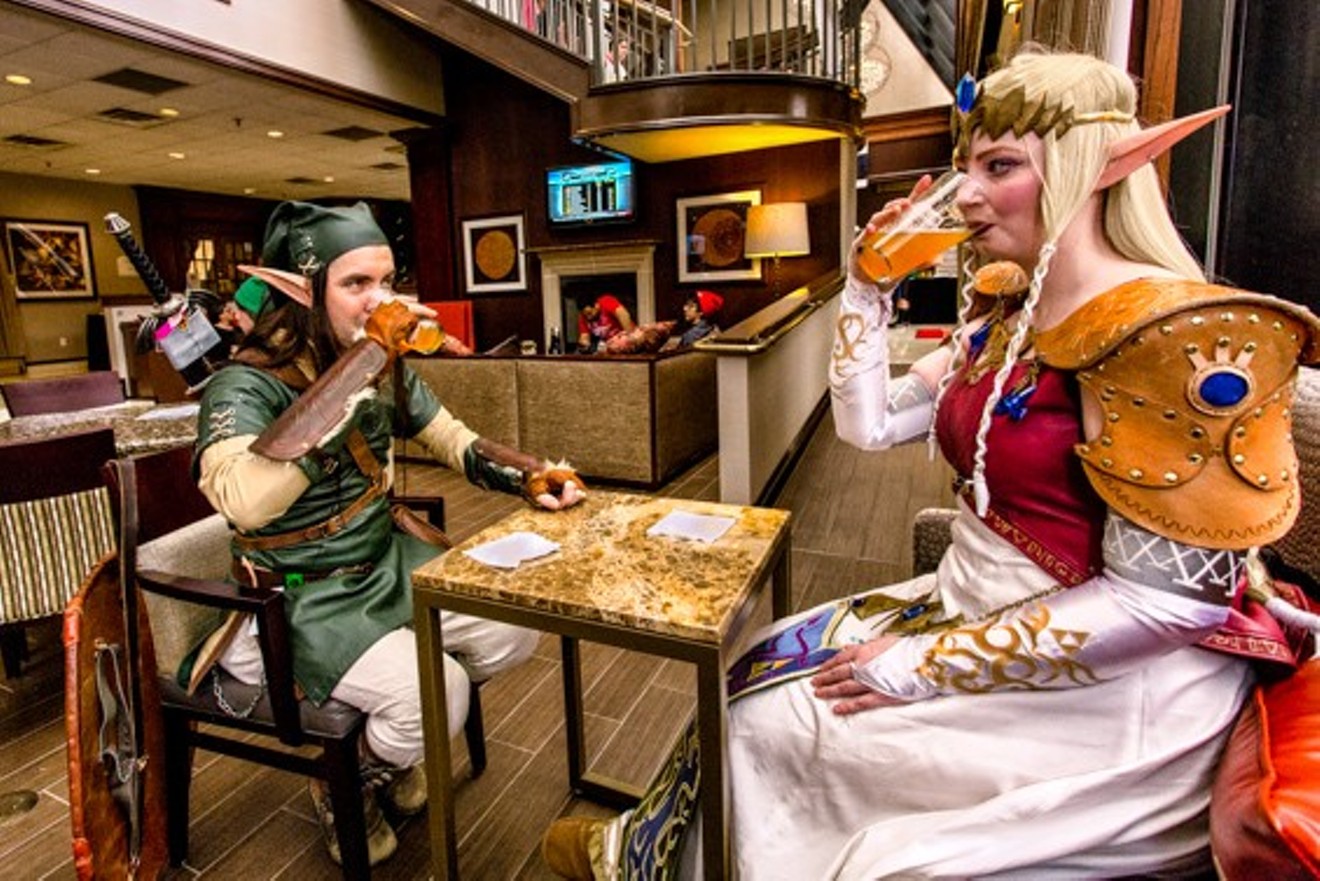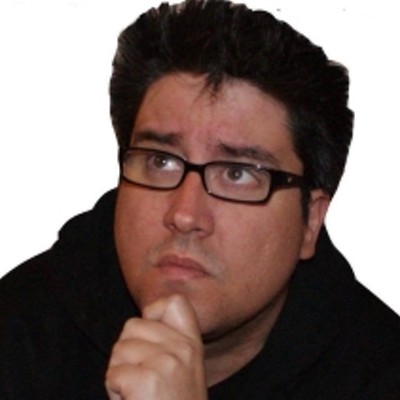All-Con remains nonprofit and local and attracts bigger crowds each year that require bigger hotels to house all of the guests and the con's activities. The price of admission is relatively affordable compared with bigger cons. The first day of the convention is free.
Most important, All-Con's main mission is to give guests tons of things to do in the three-day schedule besides spend scads of money on autographs and concessions or wait in long lines for five awkward seconds with their favorite celebrities.
"People going to a convention basically go to the vendor hall and show off their costumes," says Todd Carlton, an author and one of the founding organizers behind All-Con. "I stopped going to Dragon Con [in Atlanta] because it's shoulder to shoulder, and I don't have fun anymore. The advantage to All-Con is even though we are in a larger hotel, we still maintain that small convention feel, and we will not oversell it and we will not overfill it. I guess we're just trying to maintain that for the little guy."
The entire venture is designed to be affordable and accessible. Nine people started All-Con because they wanted to party with fans. Four remaining founders — Carlton and his wife, Tamara, Brian Heiar and a fourth person who wishes to remain anonymous — still run the con 14 years later. They dedicate a big chunk of their time around the year to planning the annual convention in order to make enough money from the convention so they can keep doing it every year.
"The first couple of times were pretty small, but we made a lot of friends, and it was neat hanging out with different celebrities and bands who would come to some of the room parties and get to know everybody pretty well, and it's been a family atmosphere," says Heiar, who works as a schoolteacher when he's not doing con stuff. "It's more about family than just being a business anyway."
Todd Carlton says All-Con originated in 2003 at the old Sci-Fi Expo that's now owned by the Dallas Comic Con. Carlton had a bunch of members of the Star Wars cosplay group the 501st Legion
The founding members later attended Dragon Con. Heiar says the
"There were a lot of convention center-based toy and autograph shows and ... hotel conventions that focused on anime or whatever," Heiar says. "My best friend from high school got me going to Dragon Con in Atlanta on Labor Day weekend, and they had everything. Going there for the first time changed my life. So I had been wondering for the first couple of years, why don't we have that here?"
The plan was to stage a convention packed with activities and events covering a variety of genres and pop subcultures in one hotel. The first official All-Con kicked off in 2005 at the Sterling Hotel. Like many great things, it didn't go exactly as planned. Most of the vendors they had lined up pulled out a month before the first All-Con because they didn't want to pay a first-time convention for the opportunity to sell their stuff. The only one who stayed was a local business called A Piece of the Action Collectibles run by Cole Houston, who stuck with All-Con and eventually founded All-Con's game shows and theories programming wing with his wife, Cat.
"It was a fairly light turnout," Carlton says about the first All-Con gathering. "We had less than 300 people, but because of this thing that we spent two years building, we had 300 people who were smiling."
The founders made just enough money to stage another convention the following year. Eventually, the money began to snowball, and the convention grew year after year.
The convention has developed traditions. The 2006 All-Con was supposed to feature a chance for cosplayers to audition for comic book legend Stan Lee's reality show Who Wants to Be a Superhero?. The producers of the show decided to pull the audition opportunity before the convention was scheduled to start.
"We promoted the snot out of it, and this was our second year after taking it on the chin," Carlton says. "Ticket sales were great, but then the show — 'We're going to have it at a local mall. Sorry.'"
The convention organizers decided to host auditions anyway, and the event turned into the annual Superhero Sunday celebration that's now in its 13th year — 11 more years than Lee's reality show.
The second All-Con also featured a live
Haier's accident inspired Carlton and company to buy a large talking leprechaun piñata called Squatty McManly that the members would crack open during a late-night outdoor party session. The tradition continued until 2016, the year of the "great piñata accident," Carlton says.
"I think the reason people like us is we're not after their money." – All-Con organizer Todd Carton
tweet this
"I was involved in an accident where someone swung before I could get out of the way," he says. "It knocked me out, and I broke my nose with three days to go left in the con. I probably should have gone to the hospital, but I lay in bed all day Saturday and Sunday. I was back on my feet again because it's All-Con. If you get hit in the head with a stick, you get back up and move on."
The convention is still going strong, even with some stiff competition in the convention market. Some years, the annual Star Wars Celebration in Los Angeles is scheduled at the same time as All-Con, causing local attendance to dip, but word of mouth and the convention's core support group help keep enough money circulating to merit another year.
"I think the reason we do it is
Carlton says the secret to their success is simple: Treat the fans right, and they'll treat you the same way.
"I think the reason people like us is we're not after their money," he says.
After all, it's not just money that keeps conventions up and running. Haier says there wouldn't be conventions without the fans who attend them.
"For us, we're pretty much like family, and we're committed to each other," he says. "We help each other out, and our assistants are the same way. We're fairly tight-knit, as opposed to what people used to say. Like if someone's a Star Trek fan and someone's a Star Wars fan, they're going to hate on each other. We're trying to go against that stereotype. We focused early on being an umbrella, and whoever wants to take part can join in."














